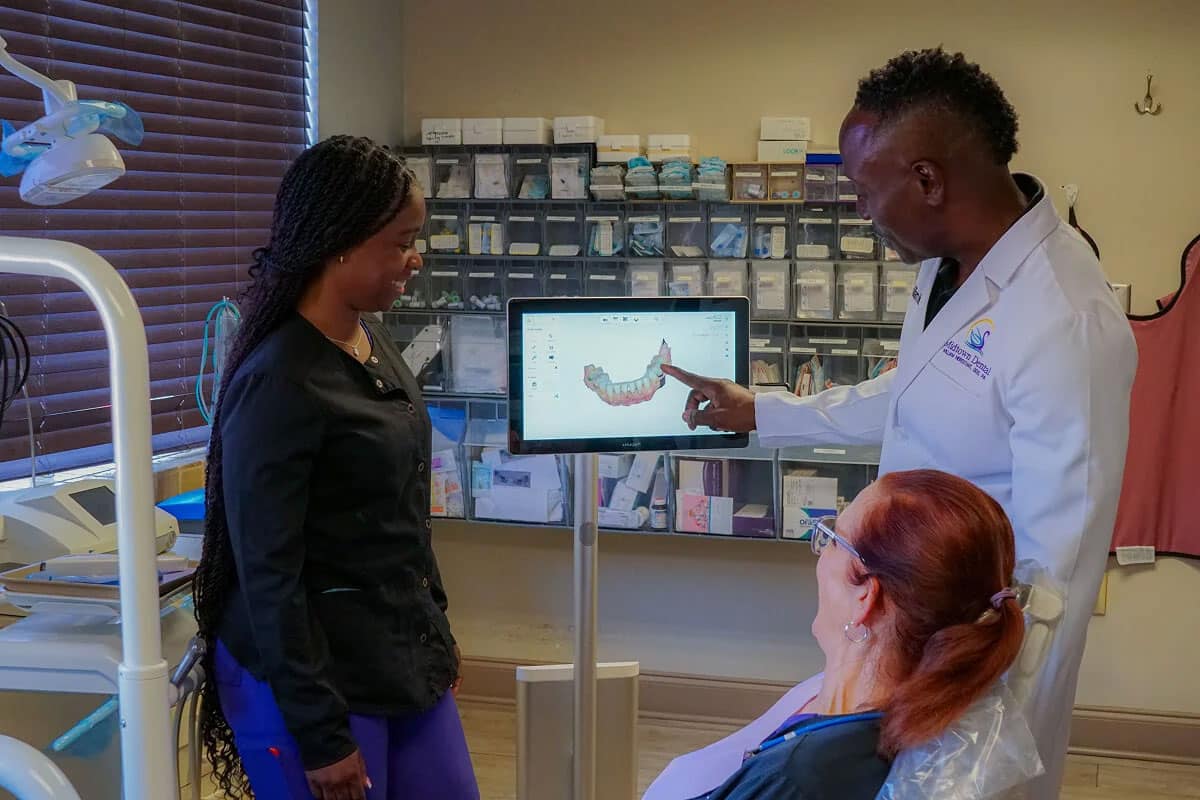Dental emergencies can happen at the most unexpected times, leaving you unsure of what to do next. Whether it’s a severe toothache, a broken tooth, or an accident that affects your mouth, getting help quickly is the key to protecting your health. Emergency dentistry focuses on fast care that relieves discomfort and prevents issues from getting worse. If you’re facing a dental emergency, call Midtown Dental in Lakeland, FL, right away to get the treatment you need.
What Is Considered A Dental Emergency?
A dental emergency is any situation that causes intense discomfort, sudden damage, or risks long-term harm to your teeth and gums. These emergencies can affect your ability to eat, speak, or go about your day comfortably. Knowing when something is urgent helps you act quickly.
- Severe discomfort or swelling: Often linked to infection or trauma that needs attention.
- Knocked-out or loose tooth: Acting fast increases the chance of saving it.
- Broken or fractured tooth: Can expose nerves and weaken your bite if ignored.
- Uncontrolled bleeding: Signals serious damage that must be treated promptly.
Steps To Take In A Dental Emergency
When emergencies happen, taking the right steps can make things less stressful and improve your chances of recovery. Simple actions at home can help protect your smile until you can be seen by a dental care provider. Staying calm and acting quickly matters most.
- Call your emergency dentist right away: Immediate guidance ensures you take the right steps.
- Control bleeding with clean gauze: Gentle pressure helps slow or stop bleeding.
- Keep a knocked-out tooth moist: Moisture protects root cells and raises survival chances.
- Apply a cold compress: Reduces swelling and makes you more comfortable while waiting.


Emergencies We Treat
Dental emergencies come in many forms, and each one requires a different approach. No matter the situation, timely care helps preserve your oral health and prevent complications. Below are some of the most common dental emergencies we treat.
Severe Toothache
A toothache that lingers can mean there’s an infection or deep decay that needs attention. Ignoring it often makes the problem worse and could lead to bigger complications. Quick treatment can bring lasting relief.
- Persistent throbbing discomfort: Often caused by infection reaching the inner tooth.
- Swelling in the gums or face: Indicates the problem may be spreading to nearby areas.
- Sensitivity to hot or cold: Suggests the tooth’s nerve may be involved.
Cracked Tooth
A cracked tooth weakens your bite and may cause sharp discomfort when chewing. Even minor cracks can grow larger if not treated promptly. Getting care quickly keeps your tooth strong.
- Discomfort when biting down: Pressure makes cracks deepen and worsen over time.
- Visible damage to the tooth: Small lines or chips can still lead to serious issues.
- Risk of infection: Bacteria can slip inside and cause decay or swelling.
- Tooth instability: Structural weakness increases the chance of breakage.
Tooth Fracture
Unlike a small crack, a tooth fracture can reach deeper layers and cause more serious damage. It increases the risk of infection and weakens the overall tooth structure. Emergency care helps restore function and prevent further harm.
- Part of the tooth broken off: Leaves the tooth vulnerable and harder to chew with.
- Immediate sensitivity or discomfort: Indicates nerves may be exposed.
- Greater risk of infection: Open surfaces allow bacteria to spread quickly.
Tooth Avulsion
A tooth that gets completely knocked out is one of the most urgent dental emergencies. The faster you act, the better the chance of saving the tooth. Every minute counts.
- Handle by the crown only: Touching the root can damage delicate tissues.
- Rinse gently with water: Cleaning removes dirt without harming the root surface.
- Keep the tooth moist: Placing it in milk or saline helps preserve it for reimplantation.
- Seek dental care immediately: Success rates drop the longer you wait.
Soft Tissue Trauma
Injuries to the gums, lips, or tongue can be very uncomfortable and cause heavy bleeding. Without proper treatment, these injuries may heal poorly or become infected. Emergency care helps the area heal properly.
- Cuts or lacerations: Professional evaluation ensures proper closure and healing.
- Bleeding that won’t stop: Continuous bleeding may require stitches or intervention.
- Swelling or bruising: Indicates trauma that should be monitored and treated.
The Impact Of Neglecting Dental Emergencies
Delaying care for a dental emergency can cause lasting problems for your health. A small issue can grow into something that is harder and more costly to fix. Getting help quickly is always the smarter choice.
- Infections can spread: Affecting nearby teeth, gums, and even overall health.
- Higher chance of tooth loss: Early treatment gives the best chance of saving teeth.
- More expensive treatments later: Complex care is often needed if problems worsen.
- Longer-lasting discomfort: Everyday life becomes harder when issues aren’t treated.
Preventing Dental Emergencies
While you can’t always stop an emergency from happening, good habits can reduce your risk. Protecting your teeth in daily life goes a long way in keeping your smile safe. Prevention is always better than repair.
- Wear a mouthguard during sports: Helps absorb impact and protect teeth.
- Avoid chewing on hard objects: Ice, pens, and hard candy can cause cracks.
- Maintain regular dental visits: Routine care spots issues before they become emergencies.
- Practice good daily hygiene: Brushing and flossing strengthen your teeth and gums.

Every Minute Matters For Every Smile
Dental emergencies can feel overwhelming, but the right care brings fast relief and lasting protection. Our trusted dental care providers are here to restore your comfort and keep your oral health on track. Acting quickly prevents problems from becoming more serious and helps you feel confident again. Call Midtown Dental in Lakeland, FL, today to get the emergency dental care you deserve.
